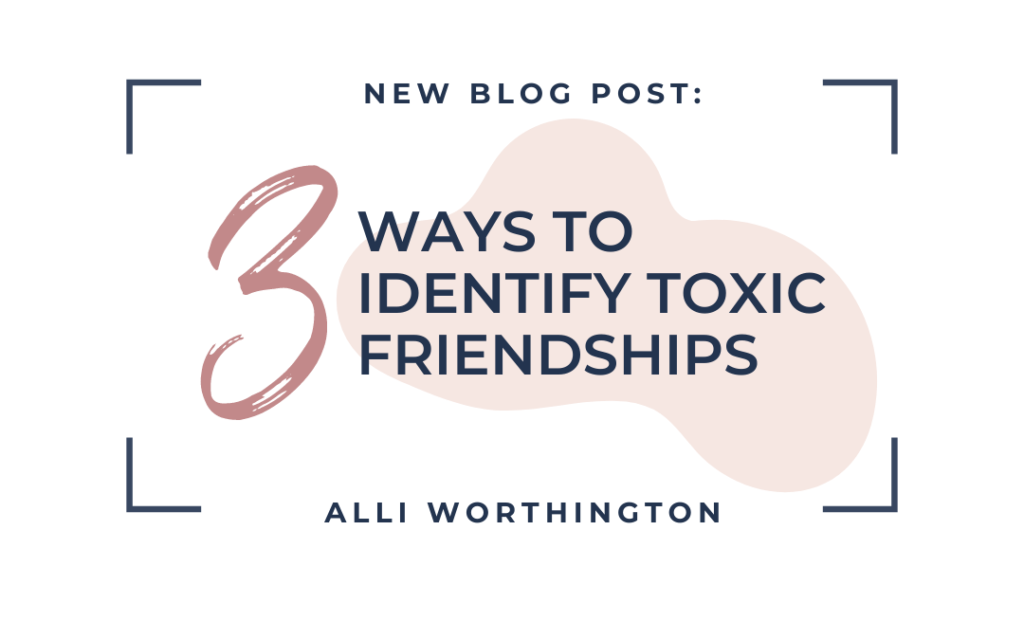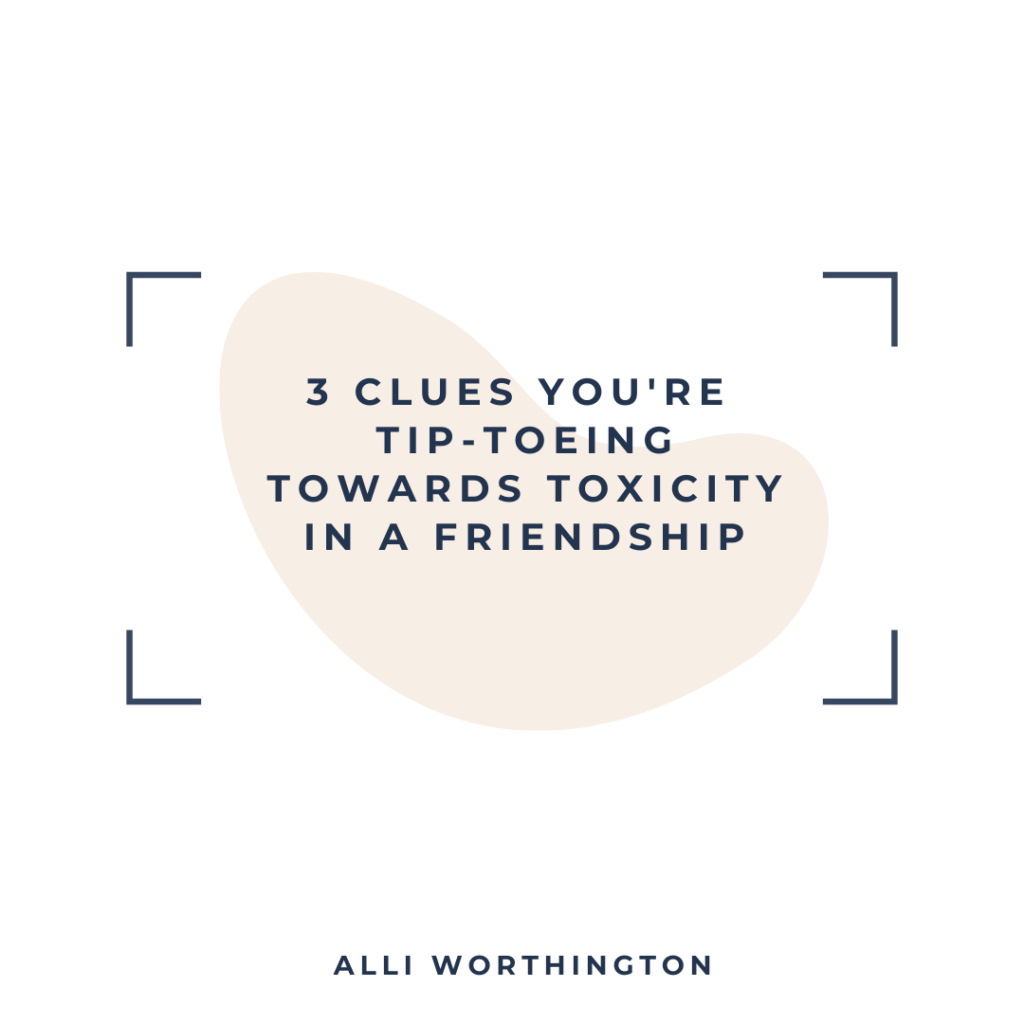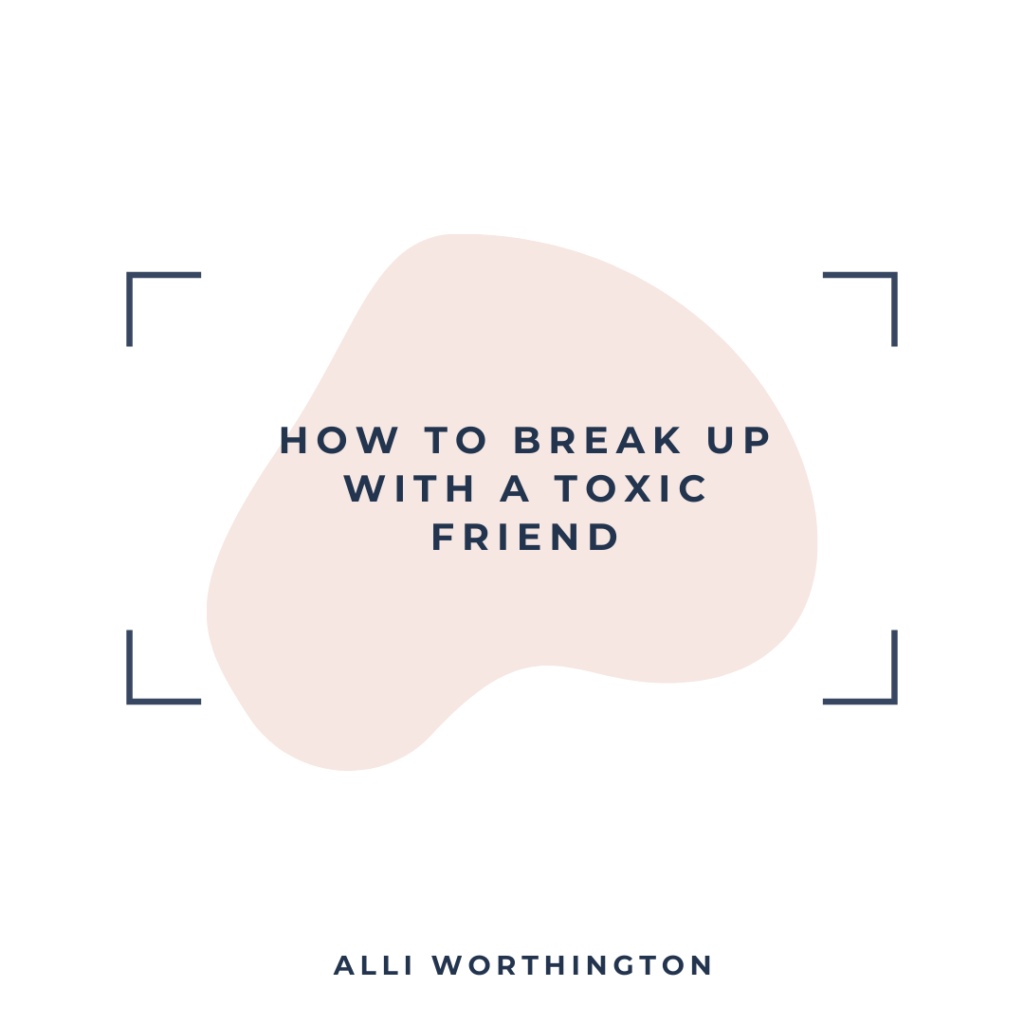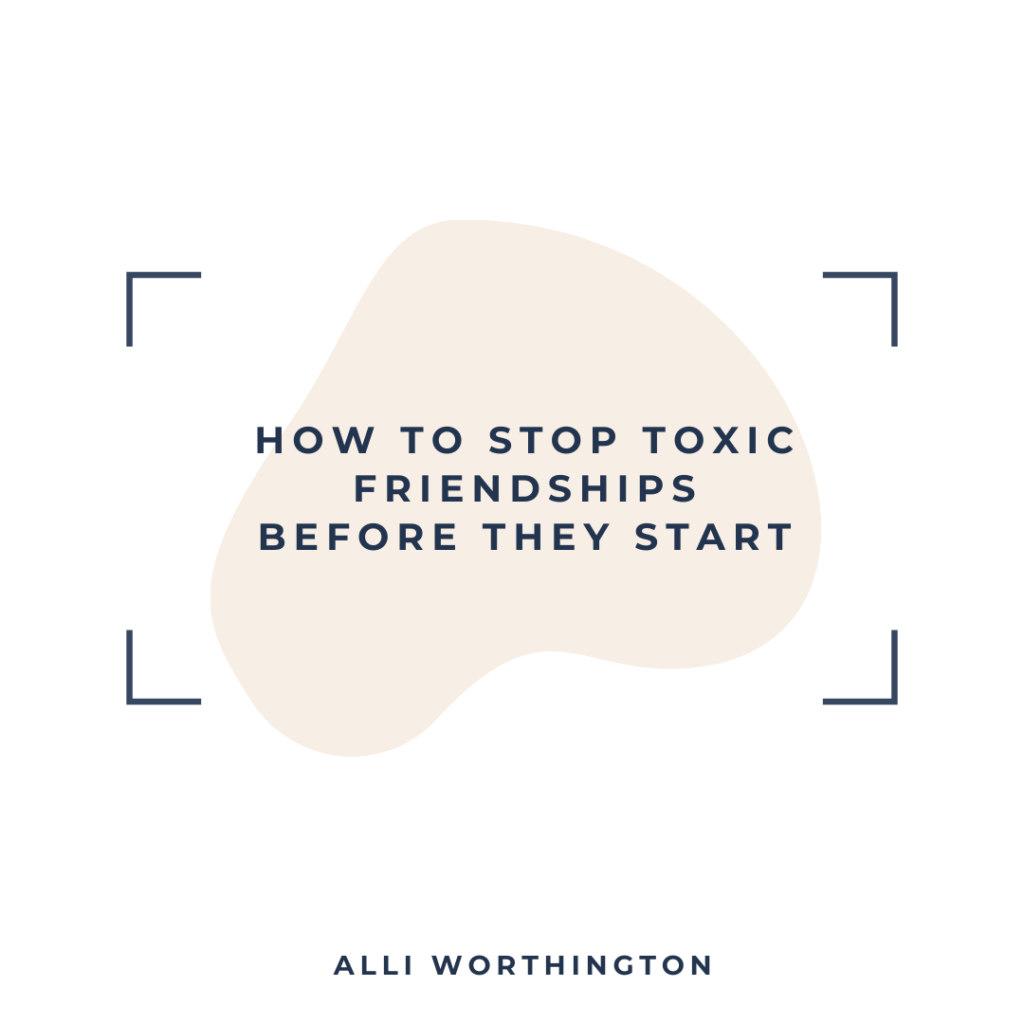You know building your brand is a crucial step to crafting your dream business. This workbook is designed with you in mind to simplify those steps.
Take the 3 day course building challenge
3 Ways to Identify Toxic Friendships

We’ve all had those friendships that are going great — until they’re not. The ones where we start seeing things go awry but tend to ignore it in the hopes of a miraculous and easy turnaround. A regular evaluation of friendships can help us determine whether or not these relationships are life-giving or heading for a breakdown.
Most women hardly have time for healthy friendships, let alone investing in toxic ones. Making sure our interactions with our chosen few are healthy is important for our mental and emotional wellbeing.

3 Clues You’re Tip-Toeing Toward Toxicity
1. You’re Feeling Worse
Words matter. And passive-aggressive tones, critical statements and back-handed compliments do not build up friendships. Interactions with friends should not leave you hurt. Hard conversations spoken with truth and love can be convicting (from the Holy Spirit — not our friend). But empty jabs at our character only tear down.
Toxicity tends to spread. If you’re finding that you don’t like who you are when spending time with that friend — chances are toxicity has overflowed into your life and actions. You might notice your habits start to change, and even your speech can sound more like that friend instead of your own.
You’re not to blame. Well, not always. We take on our fair share of responsibility in relationships, for better or for worse. Just ask any married folk! But when one person is constantly to blame, or one person chooses to take on that blame, something is off. If you’re taking on the blame to avoid conflict, that’s not a healthy friendship.
2. You Fear a Reaction
Walking on eggshells is as uncomfortable as it is impractical. If you’re living in fear of how your friend will react to your words or actions — it’s toxic. You lose the freedom to be yourself and your friend is missing out on the gift of you. One of the best parts about friendship is being able to express your full self within that relationship: every quirk, every joke, every intricacy of what makes you you. And knowing that it won’t be judged — or at the very least, will be forgiven.
Another trait of a toxic friendship is that you fear the friend could leave at any moment because of something you did or didn’t do. This is no longer a meaningful friendship — but a weaponized one. Friendships should never be threatening.
3. You Have to Ask…
It’s probably not healthy. You know. Since we are continually & progressively being transformed into the image of God (2 Corinthians 3:18) it’s no mystery when we’re able to identify when a friendship is turning toxic. Whether we want to call it a gut feeling or intuition — we have the wisdom of the Holy Spirit inside us to recognize when things aren’t quite right.
“You already know if your friends are toxic, because you feel drained trying to keep up. You aren’t happy when you’re with them, you’re not happy when you’re away from them. They make you feel like you have to compromise on the things that are important to you, and they bring out the worst in you.”
– Zulie Rane, Medium
What Should I Do About My Toxic Friend?
So now that we’ve identified what toxic friendships can look like — what do we do about it? This is a hard pill to swallow — but no friendship is better than a toxic friendship. As generous women, we’ll be tempted to extend a second, third, or even more chances for that friend to change. But in many cases, it will be best to let that friendship go in protection of our own health.
Breaking Up is Hard to Do
Letting go can be necessary and hard. But staying in a friendship that hurts is harder. There are two main points to remember when breaking up with a friend are: be direct and rehearse.

Be direct. Communication is key. State your reasoning and how you feel. Share with grace, but no holds barred. If your intention is to end the friendship, you’ve got nothing to lose in speaking the truth.
Rehearse. Practice what you’re going to say to a friend. Out loud. Don’t go into the conversation cold, only thinking about it. Remember, you can only control what you say, not how others react.
Are Second Chances Possible?
Yes, but proceed with caution. Many times a friend’s toxic behavior has nothing to do with you, so continuing to be their friend will not necessarily solve it. If you feel drawn to give your friend another shot at friendship do it with wisdom.
- Be Direct – just like you would be if you intended on breaking up the friendship. Tell your friend your “why” and how it makes you feel.
- Set Boundaries – protect your mental & emotional health. Toxic friends should not have full access to you after they’ve proven they cannot be trusted. For more tips on setting boundaries read this Healthline article.
- Take Time – Distance (physical, mental, and emotional) from a toxic friendship can help you see more clearly. Reflecting on the friendship and how you’ve benefited from it can give you the opportunity to make a clear decision to continue, give it a second chance, or find the clarity you need to call it quits.
Stopping Toxic Friendships Before They Start

Best friends are great, but no one person can be your go-to person all the time. And you can’t be someone else’s. No one friend can meet every need. Having different friends to lean on in different seasons is key. Cultivating multiple relationships within your community also keeps friends from relational burnout with you.
Find Faith-Filled Friends. Ones that stir up the gift of faith in each other (2 Timothy 1:6). Find friends that can come alongside you. Pray for you. Encourage you. Friends that keep you accountable in your walk with Jesus.
Not all friends are forever friends. And that’s okay. Your future self will thank you for setting boundaries with toxic friends and pursuing healthy relationships. The ones that point you toward God’s love are worth investing in.
Want to learn more about how you engage in friendships? Take this quiz to find out your superpower!
